#69 Ashley Logsdon | Mama Says Namaste: Nurturing Mindful Connections in Family Life
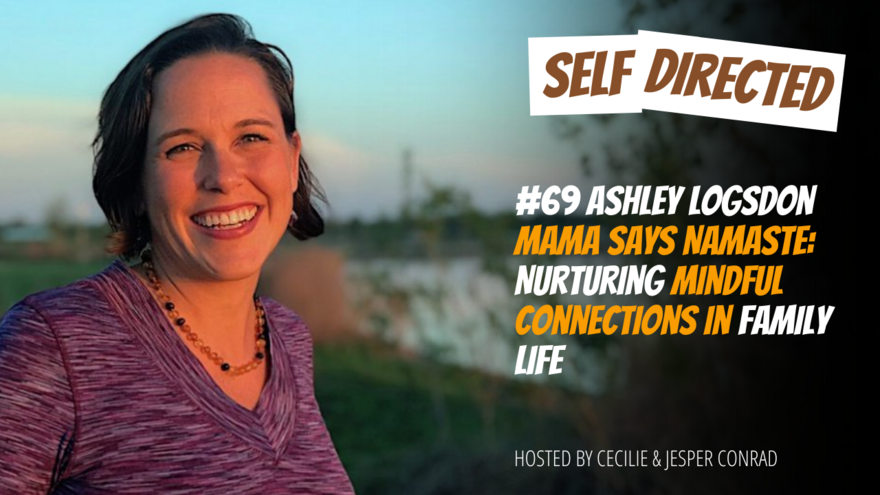
🗓️ Recorded April 18th, 2024. 📍Belton, Missouri, United States
Click here to embed this episode on your website
Where do you want to listen?
|
|
|||
About this Episode
Ashley Logsdon, founder of "Mama Says Namaste," is a family coach, podcaster, and blogger dedicated to helping families create intentional, meaningful connections. She provides practical advice on parenting, marriage, homeschooling, and work-life balance, emphasizing communication, personal growth, and aligning family life with core values.
Join us for an inspiring podcast episode where Ashley shares her journey, focusing on the intersection of parenting, relationships, and intentional living.
We discuss balancing family roles, the art of unschooling, and the impact on partnership dynamics, offering insights for families making unconventional educational choices.
Listen in as we explore intentional habits for family harmony, the importance of adaptability, and the value of rest and play in fostering creativity and empathy.
Tune in for wisdom on enhancing family life with purpose and love.
▬ Connect with Ashley Logsdon ▬
Website - https://www.mamasaysnamaste.com/
YouTube channel – https://www.youtube.com/@AshleyLogsdonMamaSaysNamaste
Podcast - https://www.mamasaysnamaste.com/all-podcast-episodes/
Podcast - https://www.mamasaysnamaste.com/podcast-danish-way/
Facebook – https://www.facebook.com/MamaSaysNamaste
Instagram - https://www.instagram.com/MamaSaysNamaste
▬ Watch the full interview on YouTube ▬
Copy the code below to embed this episode on your website.
<div id="buzzsprout-player-14837516"></div><script src="https://www.buzzsprout.com/2103333/14837516-69-ashley-logsdon-mama-says-namaste-nurturing-mindful-connections-in-family-life.js?container_id=buzzsprout-player-14837516&player=small" type="text/javascript" charset="utf-8"></script>
4 WAYS YOU CAN SUPPORT OUR PODCAST!
With love

Jesper Conrad
AUTOGENERATED TRANSCRIPT
00:00 - Jesper Conrad (Host)
Welcome to Self-Directed. We are your hosts, Cecilie and Jesper Conrad, and now it's time to welcome this week's guest. Today we are together with Ashley Logsdon, not Lockstone, now, I was afraid I said it wrong.
00:16 - Ashley Logsdon (Guest)
You did it right, you did it great I did it great, sorry.
00:20 - Jesper Conrad (Host)
And Ashley, you have a wonderful website called Mama Says Namaste. Why did you choose that name, if we just start right there?
00:31 - Ashley Logsdon (Guest)
Okay, that's a great way to start because it really my whole business started kind of at a point where my husband and I had been married for 10 years. I'd been blogging and talking about my parenting process for a while and just, you know, just sharing things as I was learning as a new mom myself. And so at this point we kind of got to this kind of epiphany point at our 10-year wedding anniversary, recognizing that it'll always remain one day until we put a date on it, like, what are our dreams, what do we want to do with our lives? And we started to think about what our big goals were. And our big goals had to do with things like travel. And when we started to then think about, okay, what is the feeling behind the goal, not just traveling, but why do I want to travel? What does that feel like to me and what are those words I want to bring forth? And does that feel like to me and what are those words I want to bring forth? And we started to think about, you know, it's that feeling of awe and it's of being in the present moment and it's embracing the now and finding joy in what is. And so, as we started to kind of dream for our future.
01:37
During this time, I was working running my father's business, and he works with people who are in the career sector looking for either finding or creating the work they love. So I've been working with entrepreneurs forever. I was coaching people and I was always the one who was at the. At the live events. We'd be telling people how to build their business or how to be a coach, and I'd be the one in the back of the room with the couples saying OK, if you're going to work together, here's how you can do it. And actually, you know, enjoy each other at home as well.
02:06 - Jesper Conrad (Host)
Without killing each other.
02:08 - Ashley Logsdon (Guest)
Yeah, exactly, and so it kind of pushed me into. Everybody said, well, why aren't you coaching in this? And so, as I started to get to what did I want my business to be about? I was very much into yoga. It has has definitely been something that has been a practice that I've done forever, and they always end, you know, every yoga with namaste.
02:29
I started looking into the meaning and the significance behind namaste and I love the perspective of namaste really really being so much deeper than a greeting.
02:40
I think about it almost like the movie Avatar where they say I see you, it's that deeper connection I sense, I respect, I value, and coaching is I help people to recognize and understand their own light and then figure out how can they connect with someone else's light in a way where both are fed. And so, of course, being the mama, mama Says Namaste kind of stuck with it and we've been it was Mama Says Namaste mainly me blogging and doing coaching. And then, in 2017, I think, we started the Mama Says Namaste podcast and I did the first season all by myself, and then I got to the marriage part and I was doing a whole series on laughter, humble pie and lots of sex and I thought I can't do this without my husband, and so I brought my husband in, and so my husband, nathan, has been co-hosting the podcast with me. Nathan has been co-hosting the podcast with me every week. We're on episode 340. Wow, so it's still Mama Says Namaste, but you also hear from Papa on the podcast.
03:55 - Jesper Conrad (Host)
Yeah. Yeah, we are only on episode around 65 or something, but it's quite a blast to do it, a podcast. I think there is such a big learning journey in it. I mean just all the people we meet and talk with and also the fact that if you're doing a hosted, without guests normally uh podcast, then you actually need to think about what you're saying and have something kind of profound to say.
04:25 - Ashley Logsdon (Guest)
My dream was always to be like the Dear Abby type of person where people write in questions and you can answer things like that. And my father had a podcast for 17 years and that was his podcast was people would ask him questions and he would answer and it was all career related and so I kind of followed in my father's footsteps with it and my brother is also a big podcaster and so, yeah, it was a natural fit to go into that and, because of everything with my dad and all of the stuff I've been doing with his business, it brought a lot of content. So, not to mention the fact of just dealing with parenting, there's enough content in figuring out the next thing that we tackle as parents.
05:06 - Jesper Conrad (Host)
So, ashley, talking about parenting in relationship with relationships and having a partner being married, then how big a part of parenting is the being a couple, the being a couple, um, and the reason I'm asking, in this world where you and I and cecilia, all all are, where we are more unconventional parenting, maybe through homeschooling, unschooling then my experience is it is often the woman who comes home and say you know what? I have an idea, let's start to homeschool. And then, after have an idea, let's start to homeschool. And then, after some time, to say, let's start to unschool. And I remember, as a man, being what is this weird shit my wife comes home with and talking about? That sounds weird. The public school system was good enough for me and you know all this, so so how, how do you work with these things?
06:04 - Ashley Logsdon (Guest)
So how do you work with these things? Oh man, first off, that's lots of great content for podcasting. So my husband and I have got several episodes where we talk about gender roles in marriage and different responsibilities in a relationship and how we both step up for parenting responsibilities in a relationship and how we both step up for parenting. So, yeah, we came. I mean, my husband came from a very traditional world of public school. His parents both worked in government work and retired after 39 years and very traditional model, and so when we started going into what we were going to do with our kids, he was okay with kind of experimenting when our children were young and kind of testing the waters a little bit. But when we look at and really the basis of what I'm working with with families is what is your overall family vision? What do you dream of and what do you want that to be? There are some people where they have very traditional roles for the male and the female, and it may be that the woman is very much in that role of being the mother I'm not or being the full-time homeschooling parent. I would say, that being said, I'm not that that's the only approach or that that's the right approach. It may be right for one family.
07:21
For our family, we looked at what we want to create, and what we wanted to create and cultivate was one where both parents were actively present with our children, and we made substantial shifts to do that. We walked away from a six-figure income and my husband being a real estate agent gone all the time, and we said what do we want for our family? And what we wanted was more of the relationships we were cultivating, and that meant he needed to step into it, and so he walked away from that and we went to RVing and he became full-time dad. My work is remote, I can do it from anywhere and so he jumped into that and he learned so many of the different roles. We approach our parenting very much from an angle of both of us, having experienced both sides, and I do challenge couples that before you knock or get frustrated for what your partner is or isn't doing, live in their shoes, step into it and experience it If you've never experienced what it's like to have to have the mental load of figuring out what food to get and what food to put on the table three plus times a day and we know more when we have hungry, growing children and just the mental load of that.
08:29
On top of keeping the house clean, on top of figuring out the schedule and on top of getting our children to all of the different places they may need to be, there is a huge mental load. And you're seeing more and more kickback from parent, from mothers, saying I me, just giving a chore list does not take out the mental load. There is more in this and you are all in, every man and every father coming into this. You are smart enough, you have enough of a brain yourself to be able to check off some things on how it take, what it takes, to run a household, because otherwise you're simply another child in this household. And so in a relationship where two parents want to be seen in that relationship, then the expectation is they both are contributing in that relationship and that is going to look different for different people, but it definitely means sharing the mental load of addressing all the things that it takes in running a household.
09:24
And so, yeah, so it kind of shifts for everybody. But I always challenge the fathers to step into the role if they want a relationship with their partner and with their children. That's part of the responsibility is them understanding what we don't understand. We can be quick to reject. We can be quick to condemn, criticize and judge. The more we educate ourselves, the more grace and respect we're going to have for whoever is choosing to do it. Stay with us, we'll be right back.
09:54 - Cecilie Conrad (Host)
Hi, this is Cecile. We're interrupting our own podcast just to make sure that you know that I am available if you want to talk to someone who has lived the unschooling life, who has traveled the world, who has beat cancer, who has been the mother of four amazing children. Luckily, I still am the mother of four amazing children. I know about life when it's hard. I know about life when it's complicated. I know what you need is probably, most of all, someone who will understand the special world that you are in as an unschooling parent, even with your trauma and your personal history getting in the way.
10:37
What I do really is to be a loving support, a rock, and I do it on the base that I am a trained psychologist. I have worked with a lot of people with a lot of different situations. I am so ready to be your support, the one that you need to get some confidence and be strong in your journey as an unschooling parent. So don't hold back. I give a 20-minute conversation for free. You can talk to me on the phone or in a video call and just see if it's a match. If you want to connect, you can find me on social media or find me on my website, cecilyaconradcom. If you're a Danish speaker, I have a Danish website, cecilyaconraddk, and we can find those 20 minutes and see how it goes from there. And now back to the podcast.
11:33 - Cecilie Conrad (Host)
I totally agree with you. I'm thinking two things, and one is just. I've heard my husband a few times say, when he was frustrated about running fast to get all the money that we needed to buy all that food and other stuff, that it looks like I'm just drinking coffee all the time.
11:50 - Jesper Conrad (Host)
You know, you just sit there drinking coffee I'm at least honest and take with pride on the stupid depression understand your pressure.
12:01 - Cecilie Conrad (Host)
I'm just saying it can look like that to be a radical unschooling mom, because one of the big jobs is to be available, which means if I'm doing something all the time I'm not available, so I actually have to sit there and drink coffee. I spent the first few hours every day chatting with my children and it looks like nothing. And until you live it, until you understand what unschooling really is, it looks like nothing, it looks like weekend, it looks like vacation. And I think it's one of the challenges we have when we try to explain in the classic situation with the dads leaving in the morning, doing the normal stuff at the office, coming back with the money and being tired and looking at the family. And why didn't you even do the dishes and what's going on here. So so live in each other's shoes or at least try to.
12:53
To stretch your empathy muscle is a very, very, very good idea for both sides. Um then I would somehow without I'm not challenging what you're saying, but sometimes you know, opposites can be true at the same time that one of the actually very interesting pieces of advice I got from my mother when I was young. She said yes, it's a good thing to share. She was part of the whole women's liberation. She was burning her bra in the 70s, the whole thing. But at the same time she said, yes, there are no blue jobs and pink jobs and you know you should share.
13:32
But on the other hand it's pretty nice to just have a separation of tasks.
13:38
You know, if you got covered with the car because you understand it and it kind of feels nice for you to do that, I'll make sure that kids always have shoes the right size, and it's not because I'm a woman and you're a man, it's because you know that's how it works in our home. And I think yes and amen to everything you said about walking each other's shoes and you know stepping up, coming into the game, not asking for a chore list because that's just annoying. I totally agree and I also talk to a lot of women who have a number of children, plus one more that they're married to, which is really annoying, but on the other hand it is at the same time just very nice. You know we don't discuss who's doing the dishes. We know who's doing the dishes. We don't discuss who makes sure that whatever shoes have the right size or that the insurance of the car is being paid for, because we don't all have to have all of the load all of the time.
14:35 - Ashley Logsdon (Guest)
So yeah, that's, that's, yeah, I mean, that's that's where I say we redefine our roles in our marriage and it's not necessarily linked to our gender. My husband happens to be a much better cook than I am and that was hard for me to stomach because that was my role. I was going to be the cook in the family and quite honestly, it stressed me out, made me not so great of a mom or a wife to be around anyway, and it wasn't enjoyable food. And so when we hit the road, nathan said I'm going to do all the cooking full time. Well, he took it over and for eight years it's kind of been his. The kitchen is his turf. And now we're kind of doing a dance of learning a new routine where I'm doing more and I've learned now and I'm better at it, and so it actually tastes good. I've had eight years of apprenticing under Nathan so I can learn about it. And so now we're kind of tag teaming and we are having a conversation hey, who's going to do it tonight?
15:28
But to your point I 100% agree. It's define your roles and it may be there is his turf and her turf, but it may not be because of your sex or your gender. It could be very much because of your skill set and your sweet spot for contributing to the family, and that's where I challenge. So it's not just equality, it's not just women have to do men's work or men's have to do women's work. It's we're raising a family. Our goal is to do this together, as a team. What's your skill set and what's mine? Who's the quarterback and who's the running back, or whatever? It's easy for me to use sports analogies, which is kind of funny because I don't do sports at all.
16:09 - Cecilie Conrad (Host)
Um so, analogy to a sport that we don't even understand, being european so exactly there you go and I see and I don't even know, football yeah the other, football, yeah the other football yeah, the one we don't like. Why would you kick the ball with your foot when it's football? It makes no sense. No.
16:29 - Jesper Conrad (Host)
Ashley and Cecilia. There's an interesting subject that we kind of just in my sense came.
16:41 - Cecilie Conrad (Host)
What are you going to say?
16:42 - Jesper Conrad (Host)
Yes, thank you. What I'm saying is I actually think that a lot of couples don't start out by taking and looking at a common vision what is our family goals, what is our family's vision? And if we were lucky in the sense that our life got totally changed around after Cecilia had cancer back in 2010,. Totally changed around after Cecilia had cancer back in 2010. And that made us stop us dramatically and ask ourselves, when she survived, what is it we want out of this life? If I could go back and change something, I would have loved to ask that question together, earlier, in our partnership, in our life together. And it is when we got a clarity about our goals, what our values are. Things just become so much easier and I'm like let's shout it out to the world go figure out your core values together as a couple I kind of want to challenge what you're just saying, just because my story is apparently not the same as yours.
17:50 - Cecilie Conrad (Host)
I think we were pretty clear on what was important and what was not important, but we were less. We had less power, you know, we were less let's wait we knew it.
18:02
I don't think anything. Anything at all changed for me value wise when I had cancer. It just got more important and I became even more of a no bullshit kind of person. I was like I don't have time for this. I just got time again and now I know the value of it. I almost ran out of time and now I'm 35 years old and I beat it. I'm going to cherish every moment. I don't have time for that anymore. I'm going straight for what's important and I think that's what shifted for us. It's not that we didn't, so it's the question. It wasn't that we didn't. So maybe, if any point is going out to the world, you know from our experience, maybe you think you thought about it, but think about it again and think about how important it is to think about it on a regular basis.
19:03 - Ashley Logsdon (Guest)
The reality is that when we're building a business and again me working in the get so focused on the content and my message and what is my mission and what is my brand and what is my niche and all of these things, and then marriage and parenting we go, we just react. We just react to what's thrown our way and even if we have a good idea and a good vision of I want a happy family, you don't necessarily get intentional enough. To say a happy family means that right now we need to do a family reset and we're starting with a routine in the morning and have something where we can come together, or that we're going to have a conversation where the whole family knows what our family vision is, things like that. And so when I work with couples or families, that's my first thing is what is your family vision? Is things like that? And so when I work with couples or families, that's my first thing is what is your family vision? Have you ever even discussed this with your partner, like what your dream is versus what theirs? I mean, what does it look like to show up as a partner? And have you discussed this with each other? And then, what does it look like to show up as a parent. What's important? Is it fostering, you know, a deep relationship? Is it enjoying the play and the fun? You know what are those key words? And so when we were, when our kids were young, we sat down and we just dreamed with them. We looked, we just said you know what does home look like? What words do you think encapsulate that? And then we wanted to make it easy. So we have people that.
20:26
So then I have this conversation about doing a family vision, and then they go to the other extreme and they create a family vision that's like a page long and it's this whole manifesto. And then I say you know what's your family vision? I don't know. It's like in a file cabinet somewhere and I'm thinking, well, that's not, that's not easy to apply. We want this short and simple something that you can remember, something that's a mantra, my Something that you can remember, something that's a mantra.
20:48
My parents had one when we were kids. That was a poem that inspired my mom and she printed it out, drew it like she drew a picture with it and stuff, and then she posted it next to the toilet, on the refrigerator door and on the bathroom mirror. We saw it all the time and I can still recite it to this day. And so for us, for our kids, our kids were I mean, our youngest was three when we created our family vision together. And it's a fight instead of a you should or don't do this.
21:33
It was a simple question. You know, hey, hon, when you stepped on you know my three-year-old hey, when you stepped on that toy, you remember what our family vision is Explore, respect, listen, learn. Was that respecting that toy? Was that respecting our things? Oh no, it wasn't. And all of a sudden, we can have a conversation about it. And so it works.
21:50
It worked for us to, as we move forward, every reaction I could look at okay, am I reacting? Am I moving forward in alignment with what I want to create, or am I simply reacting in a moment? And so, as we can look to get more intentional with our families, we can start to cultivate and create what we want, instead of simply going in reaction mode. And that's a reality, all of us do. It's just, it's the reality of us as humans. We are going to just react at times, we're going to get overwhelmed because we're parents 24-7 from this day forward, even when they leave the home. We're still parents 24-7 and we still have that opportunity, even if they have a little bit more freedom. So you know it helps to be intentional.
22:32 - Jesper Conrad (Host)
I work together with Janet Edward, wonderful woman, who have created the Passion Test, which is a book and a New York Times bestseller, and she has this sentence where she says when in doubt, choose in favor of your passions. And I also love that. And I also love that. But when I look back at and trying to go into being like 33 year old me and we had a son that was one and a half and if I was to look at my family vision, it would be like sleep, less stress at work, figuring out to earn enough money to run a household. That would be like it was more survival mode. So I think with people who would have asked me that back then, I would have been like, oh, come on, shut up, I don't have time for this. I need to sleep and survive.
23:23 - Ashley Logsdon (Guest)
Stay with us, we'll be right back.
23:26 - Jesper Conrad (Host)
Hey, just a short interruption as I have a small message about some of the things I'm working on. My name is Jesper Conrad. It is my pleasure to invite you to become a less stressed dad. I know how it is to be stressed out.
23:40
My wife had cancer, I have four kids and I had a long career and had to like juggle everything at the same time and it's hard. It's sometimes hard to be a dad. It's hard to be the breadwinner. If that's what you are, that's what I've been in our family where my wife have been at home with our children and it takes its toll. And one of the things that really help is to talk with someone else about it, and that is why I've created the Better Dad Institute together with my good friend Martin Cook, and at the Better Dad Institute we have dad circles where we meet up once a week and just talk about life as a dad, because sharing actually is super, super healing in the process of being a dad.
24:24
To just hear that someone else is working through the same problems that you are is very, very giving. And if you're into more like a one-on-one thing, then I would happily help you and share my experience of being a dad to four wonderful children and having a wonderful relationship with my wife and being a full-time travel dad, how I have juggling everything at the same time having a career, and how I have learned to get those shoulders down to to actually be very happy in my life. Of course, the stress can like pop up, but then I have the techniques I've learned and which I would love to teach you. So reach out at the betterdadinstitutecom and if you want to get directly in contact with me, then it's betterdadinstitutecom. Slash Conrad. I look forward to hearing from you and have fun.
25:21 - Ashley Logsdon (Guest)
And now on with the podcast well, but even for that, then my challenge is what's one word, what do you need? Do you need sleep? Okay, so then how am I going to continue to support allowing for sleep? Because I recognize the recharge, or, um, like my brother who had a two-year-old and he had a one-and-a-half-year-old and then twins born, so he had, you know, three under two. Their word was ease. That was it.
25:58
So everything that they said, every commitment that they were going toward, everything that they were asked to do, they said, okay, does this add more ease to my life or not? It doesn't have to be so big and complex. And it doesn't have to be so big and complex and it doesn't have to be your permanent forever, because, you're right, a new father at the very beginning is you have a different agenda. You have definitely moments of pure survival. Let me just get through this and get my sanity back. You have those moments we read, but we have to recognize those are seasons, and so when we set goals, it's not because a goal is or an intention with our family, it's not because that's our concrete has to be forever. It simply gives us a barometer of intention to keep moving forward.
26:42
And so I always say have grace for growth and have permission to pivot, because where we are now, with the insights we get, tomorrow that may shift and that's okay and it's okay to do that and we want to allow for that. And you know so much of these conversations that we're talking about are you know the examples that we're setting for our children as well? I want my children to know that the pressure is not on my child, who's turning 17 on Sunday. The pressure is not on her to now give me the answer of who she's going to be at 54. I mean, there's a lot of pressure for young kids to have it all mapped out and in this unschooling world I'm letting them know I'm still an unschooler, I'm still growing and I have grace for growth and I have permission to pivot and that means that I may look at you know where we're headed and shift things.
27:31
We've just dealt with a big, substantial loss in our family where everything is shifting and so in this moment I'm being honest and I'm telling my kids I don't have all the answers. I'm not saying I have our next 15 years mapped out. I don't at all. Thankfully, we've been in the traveling world. We're used to two week increments. We plan for two weeks and that's it, and travel because you know you can't always plan way in advance. So you know we allow for flexibility in it. We've set intentions so that we don't live in reaction.
28:09 - Cecilie Conrad (Host)
We don't set intentions to trap us into a prison of our words, either we always allow grace for growth I like that, I think if you're looking back at your former self and I'm seriously not trying to mock you in any way sometimes you find me a little harsh- or truthful, and the truth my bird you are looking back at a version of yourself who had quite the resistance to everything inner work or personal growth, or you know you would call that mimbo-jimbo, you would be like that's annoying. Shut up, yeah, and maybe that guy is not in our audience.
28:49 - Jesper Conrad (Host)
No, hopefully, hopefully not. Maybe that guy is not in our audience.
28:50 - Ashley Logsdon (Guest)
no, hopefully, hopefully not or maybe they're growing into it. I mean, that's the thing, yeah, we're.
28:57 - Cecilie Conrad (Host)
We're all so different from where we were 10, 20 years ago you can hear the part of the message that you're ready to hear. On the last episode, we talked about, uh, philosophy and and I happened to remember that I had read one of the books that our guest was mentioning and he said, what did you make of it? And I was like I read that book when I was 16. It's been a while, and after we stopped the recording I realized, oh, I actually read it. After we stopped the recording, I realized, oh, I actually read it because it's one of the well, in the perspective of my mother and grandmother, it was a very good place to start learning French. So I read it in French, learning French, which means I probably didn't get a lot of philosophy out of it.
29:44
We do a lot of this inner work that you also agitate for and work with that and, on a regular basis, stop and you know is is the core values? Are they the same? Where are we going? Why are we going there? We're currently traveling full-time still, and that you know that stirs the pot on a regular basis. You kind of have to stop and think where you're going and why, and what would be the benefit of whatever choice, but I think, however, the idea of making a family vision and these things. However it arrives, just pick the parts that make sense and start from there. It doesn't have to be exactly what I say or exactly what you say, Just making that little space for having any intentional living, you know, could be 10% better.
30:40 - Ashley Logsdon (Guest)
Yeah, and that's what we're just looking for. Yeah, what's something that just nudges you or inspires you a step forward from where you want to be, just nudges you or inspires you a step forward from where you want to be. And when you are creating a family, if you're, if you are looking at loving each other, then that's, that's part of just having those just yeah, just speaking those opportunities for how to connect. And I kind of blanked on where I was going with that. But yeah, I think Nathan says you know people ripen at their own time. You know all fruits ripen at their own time, and it's so true. And so that's where you know there's not a cookie cutter approach for one person and there's also not a perfect method to follow or anything else.
31:26
And we pick up different things at different times, anything else. And we pick up different things at different times. To your point, I have so picked up books recently that I read ages ago and gotten a whole different message from them when I've read them now. But I'm coming at it in my 40s as opposed to in my 20s or in my teens, and it's a whole different perspective and I have lived a different life at this point. So, yeah, it's kind of meet, meet people where they are. That was the best advice I got when I was a young mom and trying so hard to work through my daughter's tantrums and and I got a piece of advice that just says meet her where she's at. And just that little shift of just sitting with her in the moment made all the difference versus me coming in and just trying to fix it all so often.
32:10
It's not that we need some substantial overhaul of our lives. Sometimes we get them unwarranted or unwanted, like cancer and those things happen, and we have things that are unexpected, that really do jar us into getting intentional, but that's not always the case. I mean, sometimes you can have a simple conversation or hear a random podcast and there's that one sentence that just gets to you. You sit with it and it may change a difference maybe not even in your actions for that day, but it may change your awareness of what you notice and what you're observing and what you're observing and that's our goal. I think that's our goal for all of us as podcasters and as people in kind of the self-help industry and in coaching and everything else.
32:55
We can't change people or fix everyone, but if I can open the door to awareness where you are a little bit more aware of whatever, of your impact and how it is impacting yourself and others. That's it. That's all I can do. What you do with it from there is your prerogative. But that's my hope, is to sow some positive ripples of. Here are some tools that I have used. If any of these tools are helpful for you, then props to you and I celebrate that. And if not, that's okay. Not your cup of tea, maybe not for right now, maybe it will be later, maybe not ever, because you're a different person than I am, and that's OK, but a little bit more grace and respect for one another in the process, where there's more opportunity to bring awareness versus telling and talking at each other.
33:49 - Jesper Conrad (Host)
I like the way of talking about it, where you use the word awareness, because it sounds less judgmental than what's going on in my mind, where I often, until now, I've been thinking about it as one of my main goals is, if people could take more responsibility, I would be really happy. And it can sound judgmental, but I often see that people are searching for external factors of what is wrong, and it can be their marriage. Then it's always the other person's fault. It can be with their child, then it's the school system's fault or a diagnosis fault or something out there where it is not their responsibility. And when you place the responsibility another place, then, um, are you? Do you then have the power to change it? Um, and and yeah, so, but, but awareness is a good way to look at it. Absolutely, I like that.
34:54 - Ashley Logsdon (Guest)
Yeah, yeah, when you are the victim of your circumstances, you're turning control of your life into someone else, over to someone else, and so, the more that you can bring that awareness, and we yeah, nathan and I our podcast this last week was focused on that. It was inspired by somebody else's blog post, becoming Minimalist, and so we shared about it on the, on the podcast and the. The blog post that Joshua Becker wrote was less of I know what I like, more of what's working for you, and we're in this, this, you know environment, where social media self-help has come so big, you know, and so now there's so much of these stances of this is who I am, this, these are my. You know, I'm setting boundaries and I am who I am, and I am free to be me and everything else. I understand that, and there are some elements of self-love and self-care that we need, as humanity, to step into and give more support.
35:53
However, if everybody is standing on their own mountain saying this is how the way things are supposed to be, how in the heck do we work with each other? And so my question is not a judgment of it's your personal responsibility clean up your act, but it's okay. How is that impacting you Is is are you getting, are you getting, a positive return in here? Is your ripple effect something where it is supporting you and you're feeling affirmation and good flow in your life, or are you consistently the victim? Well, what is in your control? If we could start with what's in your control, you're probably going to be able to move out of it more than simply being mad at what you can't control. And so just simple tweaks on how we approach and what the impact is, because if we're all sitting there, standing on our own yeah, standing in our own stances we're not going to be able to have anything to connect.
36:47
And again, I just go back to that family team. When you're looking at football, soccer, football or any other sports, you know for the most part, when you're talking team sports, there's specific roles, like there's one person that's the goalie or one person that's doing whatever else, and so, and you don't have the goalie, go and do the other role. And again, that's where I'm going to get lost, because I'm bad with my sports, but everybody has a different role with the ultimate goal of winning the game. Well, if my ultimate goal is winning as a family meaning I actually enjoy coming home and being with these people and my home is a place where I can recharge and it's not a place that I'm walking on eggshells. If that's my goal anyway, then I better recognize how my ripple effect is impacting everyone else and my energy brings out what does it bring out in my home and beyond. So the more that they can kind of see that they have control over what the impact is, the more it can just open that door for personal responsibility.
37:52 - Cecilie Conrad (Host)
I wanted to pick it up at the there can be in this industry, as you call it, of self-help and personal development, the fixer-aller problem and the ambition problem, and I think it's an important thing. It's like the other side that goes with it again. Yes, it's great to have clear family goals. It's very important to be able to cooperate with each other. It's this freedom that we create when we intentionally do things on purpose, not just reacting to whatever, by the way, happened and what triggered it. It pushed. We have to do that. But there can be this overambitious fixer-aller. Now it has to be perfect and I can't react this way and I can't react that way and I have to always be.
38:50
I find that over the years, most of the time we're just in flow.
38:57
Most of the time we know these things in the back of our minds, but we're just, you know, doing our things.
39:02
But then where it really is a lifesaver is if I'm clear on what's truly important, and I am in the habit of stopping and thinking what's truly important and what's truly important right now, then when things get hard, you said you'd had a loss and things are shifting and you know if it gets hard or if you're in a weird situation, you don't know how to act. Then having that escape you, oh, I'll go back to my values, think about what's truly important and decide from there. Then it's not about this or that, then it's about which one of these will push me the furthest in the right direction. So, having a habit what I'm trying to say is having a habit of any practice that will give you this safe space, this escape out of the here and now and the reactive mode and and all the pushes and pulls and triggers and things that happen in the here and now. This will save the day when it gets rough, and it will get rough.
40:08 - Ashley Logsdon (Guest)
Life is not always trying out a recipe happily in the kitchen while the rough parts are the growth opportunities in many ways, and they, they can be. I say that they can be and that's my perspective, and that's the perspective I've chosen to have is that, when a struggle comes, what does this make possible? So it is what it is. When something has happened, how much time am I going to sit being mad about what's already happened and being mad about the past, versus looking at, okay, where do I go from here? What does this make possible in my life? What can I learn from? Even if what I learn is I never want to do that again, I can still learn something and then move forward from that. So, yeah, there's we are. We are going to have our reactive moments. That's a given.
40:55
So it is not that you just put on your hat of intention and you're living the saint life, moving forward. No, I don't even want that, because that robs me of my growth opportunities, because I know that when I do sit in reactive mode, there's a growth opportunity and an opportunity for some humility, for me to admit to my family that, hey, I screwed up and I acted a little harsh or I wasn't thinking, or whatever, and to be able to own that Again. What are we showing our kids All of these things that we're talking about? And grace for growth and flexibility and being intentional? I mean those are things I want to offer my children to find more ease in life, not to be the perfect person, not to never have any issues, but to recognize that they have the tools to seek the ease and the flow in their lives and to be able to, when that flow is disrupted, to have the tools to be able to get back into it and kind of find their center again.
41:53 - Cecilie Conrad (Host)
And there is this movement between the planning and the doing, the intention and the attention, if you want, to the present moment.
42:02
So if we come from a point of knowing what we want and how we want it to be, the quality of what we're trying to create and the reasons we're doing the things we're doing, I think it would drive us crazy to think about that all the time, to have it forefront.
42:16
It has to be some sort of like you make your to-do list in the morning and then you kind of forget about it, and the next morning you look at it and and and maybe you say, shoot, I forgot something important. But most more often than not, you know you got through the three most important things and in the same way, this, this should, should arrive at some sort of habit point where we can flow and then, at least for me, these things become a safe space. They become the thing that saves the day when it becomes a little more complicated. Right, right, if you say this, you and I are in the same business and we can talk and talk and talk about being intentional, setting your goals. You know all this and I married to this guy who used to have a lot of resistance, and I see where it comes from. It can sound annoying. Why don't we just have a cup of coffee and you know whatever solve the puzzle.
43:13 - Jesper Conrad (Host)
I do not need fixing right now.
43:26 - Ashley Logsdon (Guest)
Yes, need fixing right now. Yes, well, and I, yeah, I'm big on, you know it don't schedule out your life. You cannot be so intentional that everything is boxed in, and you guys can attest to this too. When you live a life of travel, you know the curveballs and the unknown variables are going to happen that may disrupt everything. You know, we learned to think on our feet and to recognize that sometimes we had to be really flexible, and maybe we had great intentions to go to this one place, but then the weather was wrong or the flight was wrong, or whatever, and it didn't happen. And how can we pivot and find something new? So all of those things, you know, happen in our lives, and so when? But what you said, though, is you're talking about the habit. You've brought that up a few times, and that's so true that when we're intentional, that's what we're wanting to do. We're wanting to get to have intentional habits that move us forward, and so I don't say schedule your whole day, but I oftentimes do tell families bookending your day is really valuable.
44:23
What's the first thing you do when you get up in the morning? What's the last thing you're doing at night? Are you doing things to dummy proof. You know, quote, unquote, dummy proof your day where you can make sure you do get those. You know, for a while, especially when we're doing family resets, which we've done on repeat. It's not like you do it once and then your family is perfect. Our kids are growing and learning, just like we are. So we have times we're doing great and we're flowing and then all of a sudden we have a time where we're going oh my gosh, we're like we're really getting frustrated with each other and we need to do a family reset. Those are oftentimes where then we say all right, you know, we've got young kids, we get up in the morning everybody's up at the same time and we have reading hour and we went through the Big Life Journal. They have got great things with Big Life Journal. I recommend them all the time. They just printable. You know free printables and stuff and so we'd sit down and we go through. You know what's your high, low, what's your buffalo, what are some. You know what is a goal you have for today, what is something you want to do for someone else? And we'd have these conversations. Well, what it did is it created a habit in our household of when they're waking up in the morning looking for okay, how am I showing up today? And just simply having that as their first thought is how am I going to show up today has created some beautiful habits that are more intentional in life. Looking at what are our big rocks and recognizing we tackle our big rocks at the front end of the day are really valuable.
45:48
And then I wanted to go back to the use just sitting and just drinking coffee, because I, being the working mom, as Nathan sitting around, and I'm struggling with my own resentment because he's sitting there playing the uk as Nathan's sitting around and I'm struggling with my own resentment because he's sitting there playing the ukulele, chilling around, hanging with the kids, and I'm sitting there, you know, with my workload and all of the, all of the mental load I've carried and everything, and I'm sitting there with resentment for him. First, I think it was a book I read, kind of called me out on it. And if you're feeling resentment, is it because you really are angry at what they're doing or are you mad that you weren't able to and that was my first checkmate was hold on a second. Am I really mad that he's sitting and playing the ukulele or am I really mad that she's sitting there drinking coffee, or am I wishing that I could sit and chill and do that and I'm angry that I haven't given myself the space to do it? So, also in our differing roles, nathan has really helped me learn how to play and how to chill and how to rest and how to recover, and he's made it such an important part of our family and justified it and stood by that and said it's okay for me to sit and play ukulele. You know I've done this, this and this today and I need to recharge and it's important for you to do the same. And in doing that, he also is helping our children learn how to recover, because I know especially here I mean I'm speaking from my US culture it is very much do, do, do and what have you accomplished?
47:17
And my personality style. I go into personality styles a lot. My personality style is do, do, do and what have you accomplished. And it's hard for me to not just be the drill sergeant throughout the day, going through the house and going well, what are you doing? That's productive. It is hard for me as an unschooling mama to see kids loafing around not doing anything and all of that. So I've had to really challenge why is that? Is that really a bad thing? And it's helped me to learn that, you know, rest and play oh my gosh foster so much creativity and productivity. If I want to be more productive and more creative and more successful in the things that I'm doing, then I'm going to add that play and that recharge and that rest, so that I have the bandwidth and the space to do it. So it's a beautiful balance of it.
48:08
And so, yeah, I mean going back to the roles. You know, maybe you don't step into each other's shoes entirely. Maybe you don't play each other's roles forever. Maybe there's very clearly this is what I do and this is what you do, but have some respect for what that brings to the family and brings to the relationship. Learn about it, learn the why and make it personal. It's that, bring empathy into it. Just recognize what they may be carrying and what beauty there may be, even in the rest or the slacker, or whatever you wanna call it that may be coming out the rest or the slacker or whatever you want to call it that that may be coming out, maybe a beautiful part of what you want to cultivate in your family and also really I think as an unschooling mother, that as an unschooling person, I have to keep challenging, and it's getting way easier what is doing and what is chilling.
49:08 - Cecilie Conrad (Host)
Why is it not doing Playing the ukulele, hanging around the kids? Why are we making this segregation between things that are elements of life that we unfold? Sometimes it looks very much to me like he's doing nothing, sitting staring at that computer for six hours, and I'm like all the kids need attention.
49:32
we need to clear the house, we have to plan the next trip, you know, and where is I can't find this and that, and we have to fix whatever dishwasher and you're just sitting there and playing tetris probably, but no, but what I'm saying is just and when you look at me drinking coffee, hanging out talking a little bit, I find that this is a core element of what I have to do to show up as an unschooled mom. It looks like chilling and it is very chillful, if that's a word. I'm just hanging out drinking coffee, chatting with my kids. I don't feel any pressure at work or any stress or anything like that, but it's still a thing we're doing. If we're watching a movie, if we're watching a movie, if we're playing a game, why do we keep making this line between production and not production?
50:24 - Ashley Logsdon (Guest)
this is a mindset that is not useful really, no, it's not at all, and I and and I think some of it can be cultural and I can't, and with me not having traveled everywhere, I don't, I can't, I can't speak for every culture but, for example, one of my most favorite parenting book is the Danish way of parenting. Um, I love that book and um, it's got some great tools in that. But when I think of we haven't read it.
50:55 - Jesper Conrad (Host)
No, it's a great one.
50:56 - Cecilie Conrad (Host)
you know, I just you know.
50:58 - Ashley Logsdon (Guest)
Oh yeah, I did it, Don't look it up.
51:00
Yeah, we did a book review on it and I've given that as a gift to so many new parents too. It's a great book and it very much encompasses a lot of the unschooling perspective and the things that I love. So I love that book.
51:15
Of, strictly speaking, my US culture, what I've grown up in, so often productivity or rest is distinguished by money. It's about money, and so there is this thought that anything that makes money is your productive good stuff. There's also the first question that is asked unless you're in the Bible Belt in the US, for the most part, the first question you get asked, other than where you go to church, is what do you do? Everybody wants to know around the money.
51:46
That's a cultural thing in the US that is starting to kind of get challenged and get broken down.
51:52
I mean, our younger generations are getting sick and tired of it, especially when their job roles may be changing every year or two.
51:59
You know there's they're constantly morphing with their jobs, and so there's more to it. You know Nathan loves to ask guys what do you like to do for fun, as something different versus just what do you do, and it throws them and a lot of guys don't know how to answer it. So I I I agree with you that I don't think that there needs to be this like my rest can be my super productive productivity time. I think that there's a disconnect in my culture here that says productivity means you make money and and yeah, I don't want to show that with my kids, my kids either so we put just as much value for sitting and playing the ukulele as we do for the work that I'm doing on the computer and we both we respect and give space for both of those in our home. So, kind of trying to change the culture, and I also am kind of feeling like that is the culture that we're kind of living in and that we're trying to pivot a little bit and move away from.
52:59 - Jesper Conrad (Host)
And funnily enough, you say productivity is making money and then relaxation is using money. I've also seen it's a growing thing. It's like now we're going to chill, let's go have a this or that. I mean it's just. It has been more eye-opening to live almost three months in the States, because even though I thought we were kind of alike, it's still a weird country.
53:26 - Cecilie Conrad (Host)
We thought we knew what it would be like and that all the prejudices were just exaggerations and something from the movies. And it's really been. We could do an entire podcast on.
53:37 - Jesper Conrad (Host)
Just the bigger business faster, more, big, more parking lots bigger, better, faster, more yeah can I?
53:46 - Cecilie Conrad (Host)
I just want to I just want to pull on another thread here. So we very often challenge that question what do you do? Uh, by, by answering. We go for a walk after lunch. Oh I love that, because we do, but also because that's more important than how we make our money.
54:06 - Ashley Logsdon (Guest)
Exactly.
54:06 - Cecilie Conrad (Host)
So that's one way of just trying to throw out the idea. Could we talk about something else? And also I want to share, because I know we have a fair share of listeners who are just embarking on their unschooling journey. So they have smaller children and they're just, you know, getting started.
54:24
And I remember when my kids were smaller that I realized really cleaning up, clearing the house, if I had the time for that, that was just the greatest luxury. It wasn't a chore. I would really enjoy it If I had just 15 minutes of uninterrupted folding the laundry and washing down the counters so that things were a little more organized. It would look like a chore, it would look like doing, but to me really it was resting Right, and I think we get these ideas about what's doing and what's resting, whereas sitting in the sofa looking at the TV, some Netflix or whatever, I couldn't sit still for that. It was just annoying and overwhelming. It was just I couldn't have it. Until my children, at some point down the journey, said we would enjoy watching this movie with you, mom. So we had all seen it afterwards and then it actually became kind of a chore. Now I do enjoy it.
55:29
It's been many years, but at some point I had to, okay. So this is something I have to do, and it looks like chilling, but to me it was not something I have to do. And it looks like chilling, but to me it was not. So I think also, we get it defined by this standardized idea about productivity and money and you know what's efficient, and we can even you know, even be be against cleaning up because, oh, I'm supposed to rest now and it's my husband's turn. And why am I always doing this? But actually it can look different and I think for many people it would be a good idea to stop and think what do I do? I feel I'm doing? Do I feel I'm struggling? Do I feel I'm doing something I have to do that I don't want to do? Or is this kind of nice? Am I doing it voluntarily? Does it make sense?
56:24 - Ashley Logsdon (Guest)
Oh, and I completely empathize too, because I love cleaning and I'm with you. Let me go scour a bathroom, Don't bother me, I'm going to just be in there living in my own little world, listen to a podcast or even just have silence and just do my cleaning, and I find it fun too. Oh man, I love that, though I think that when it comes to rest and productivity, it's similar to when you are first experiencing unschooling. You know, we talk about de-schooling. Throw out everything you think school should be and be open to how you can learn. Well, same thing here. Let's throw out what productivity and rest look like and let's say how are you moving forward and doing things that recharge you so you can continue to move forward, and that's gonna look very different for different people. Yeah, I wish I had a kid that got as excited about cleaning as I did, but we're still working on that one.
57:17 - Cecilie Conrad (Host)
I'm not going to be explicit. I'm not excited about all of those chores. I'm not going to volunteer doing all of it for all of us all the time. I'm just saying we should challenge that mindset.
57:29 - Ashley Logsdon (Guest)
Yeah, there's different things that we can enjoy and what looks like rest to one person does not to another, and I've had to come to grips with that as well, because Nathan's level of rest is different than mine and, yeah, my rest is oftentimes still doing something, and doing a craft project is great rest for me and I absolutely love it, and that's going to be a chore for him. So, exactly like you said, I mean what we see is where we're, where we're showing up. It's going to be different levels of effort that based on your, your interest and who you are and where you're at in life, which will also shift, just like you can enjoy a movie now when you didn't earlier yes, now it would be rest for me to watch a movie and maybe a chore in the kitchen, I don't know actually we should try to to round up, but as you help a lot of uh couples, so instead of saying what is the number one advice you have so where is it?
58:28 - Jesper Conrad (Host)
most of them fuck up. What is there? A certain area where you're like oh, there's this commonality that a lot of them, if they just started here, if they didn't do that.
58:43 - Ashley Logsdon (Guest)
The biggest thing is simply everyone speaking from your own mountain. I think that's the biggest part. What is your goal? That is something that Nathan told me, that when we were dating I was making some snarky comeback to something he was saying and I had I always had that he called me last word. Ashley, I'd always have the last word. I always had to have some, some kind of comeback, and I remember him stopping me and we were in kind of a rocky spot anyway, and I was really protecting my heart and so I was being a little bit more closed off anyway to him and I, just he, just he, just he gave me a big sigh. He goes what's your goal? And at that moment I thought well, what is my goal? To get the upper hand? Well, okay, then, what you know to make you feel bad? Okay, well, that doesn't really help. Or is it to love you? And if my ultimate goal is to love you, is what I'm doing right now adding to that? And so he challenged me on what is my goal?
59:45
Oftentimes we don't think about that and we just are reacting and speaking from our mountains, and so the biggest thing as a couple that you can do is ask the other person. You know where are you at, what do you dream of? How can I support you? I mean simply asking the question and being willing to hear. We are not the stewards of other people's stories. It's not my job to write your story or explain to you how you think or feel. It's my job to hear you and, as your partner in life, I want to hear you and know you, not mold a statue. You're not my robot, so I think that's the biggest one and so many things come from that.
01:00:27
You know that you hear so often that financial issues are a big issue of conflict or parenting is a big issue of conflict. These things can be big dividers in our homes. Really, let's go back to that ultimate thing. What is your goal? Is it to love each other? Well, how do you do that? Sometimes it means taking some humble pie. Sometimes it means keeping your mouth shut and not saying that last thing. Sometimes it means stepping forward and being assertive and saying, hey, this is bothering me and sharing it while it's small, so it never becomes that big mountain in your household thank you yeah so, um, ashley, if people want to get in in touch with you, uh, can you please mention the different ways people can do that and how you work with people also?
01:01:14
yes. So, um, as I've mentioned, we've got a podcast. So since, since your podcast, listening to podcasts, there's another one to add and it's Mama Says Namaste, and that's M-A-M-A Mama. So Mama Says Namaste podcast. And if you go to mamasaysnamastecom I'm just going to say go to the homepage. On that page you have a.
01:01:35
There's a pop up for communication tips for you and your partner. You have a. There's a pop-up for communication tips for you and your partner and it helps to understand maybe some ways that you may encourage and motivate one another and what might shut each other down and make each other turn into reaction mode. It works not just for your partner but better understanding, for your children as well. So there's a free download on the homepage and there's also a search bar right at the top so you put in any kind of keyword that you have.
01:02:00
That may be an issue. Maybe it is about money, and we have a lot of podcasts around what is your purpose for money, not just how do you build it all up in your bank account as your relationships are hurting. So you can put in whatever keyword you're looking for and we have a lot of blog posts and episodes to support you along the way. So there's that, and then all of those lead into coaching one-on-one with me, and I have had the pleasure of coaching coming into organizations and coaching on hiring and teams. I have also had the pleasure of working with individuals and couples with their marriage relationships and even had the opportunity to do some coaching with full families and working with the kids as well, which has been a lot of fun. So lots of variety, but the goal is relationships and how we all can thrive as we live this life together.
01:02:52 - Jesper Conrad (Host)
And it's pretty easy Just go to Mama Says Namaste. So for now it's time to say Namaste. It was wonderful to see you see your light and I can't remember the rest of the whole thing that was in it. But thanks a lot for taking your time to be on our podcast.
01:03:11 - Ashley Logsdon (Guest)
Thank you for having me. I enjoyed it. Yeah, it was fun.
01:03:16 - Jesper Conrad (Host)
Thank you for listening. We hope you enjoyed today's episode and if you liked it, then please share it with all your friends and family. We would also love it if you gave our podcast a review. Thanks, and if you want to support our podcast and work, then you can find us on patreoncom slash the Conrad family. We will continue to travel full time and if you want to tag along, then please follow us on Facebook and Instagram at the Conrad Family, and you can also read more than 100 blog posts on our website, theconradfamily. Until next time, make a wonderful day, thank you.
WE HOPE YOU ENJOYED THIS EPISODE
🎙️Our Podcast is Powered by You🎙️
We run our podcast on love, passion, coffee and your generosity. Here are some ways you can help!
Listen to the latest episodes, see shownotes and episode links.
Where are we now?
Want to stay up to date with our travels and podcast? Then sign up for our weekly newsletter





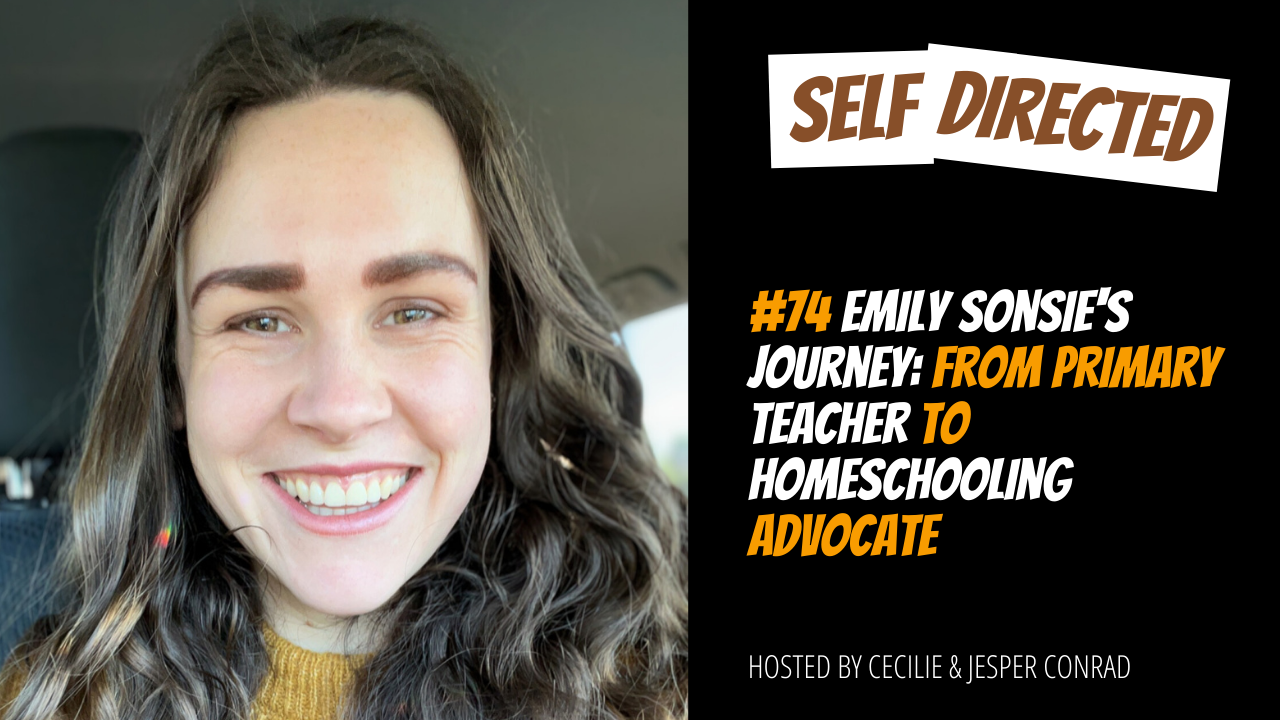
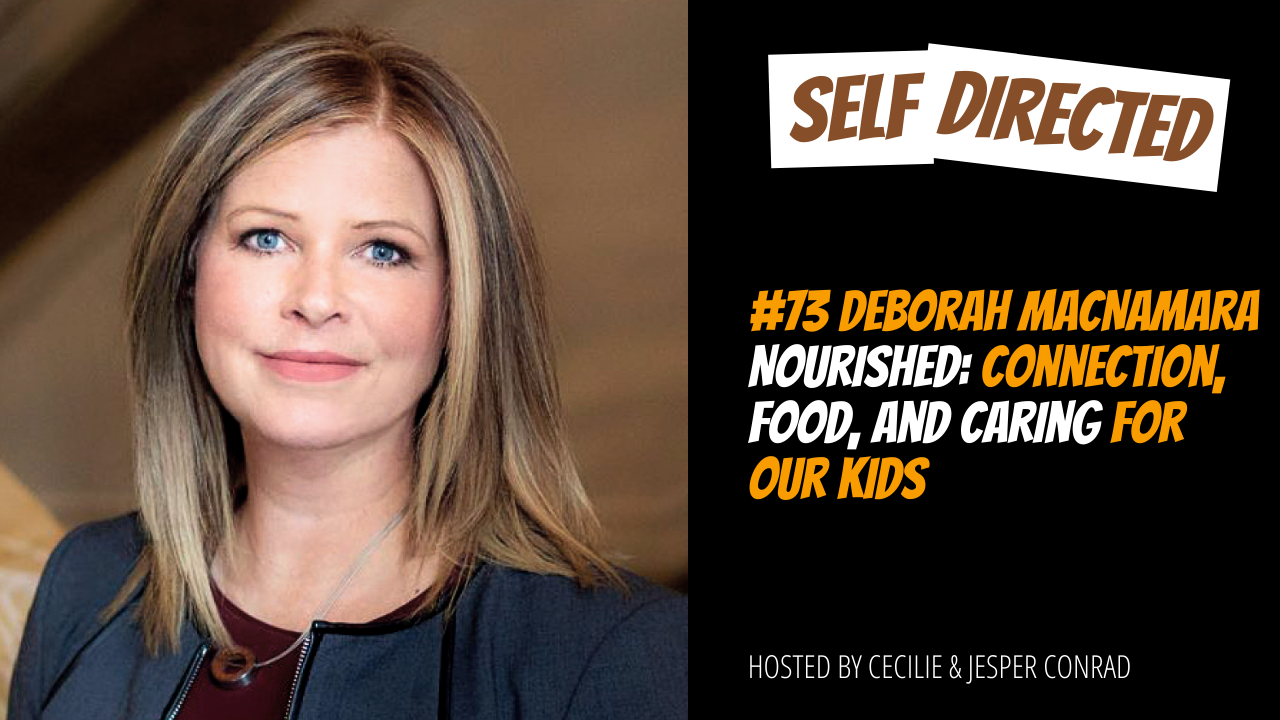
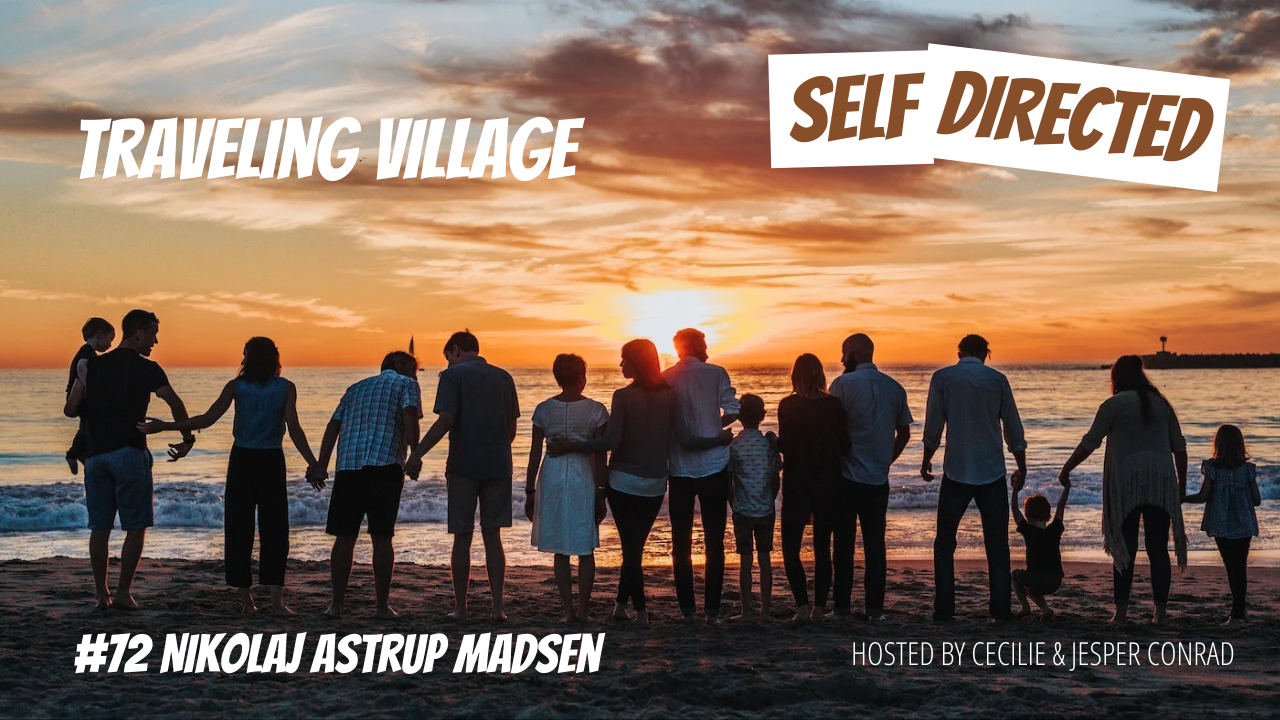
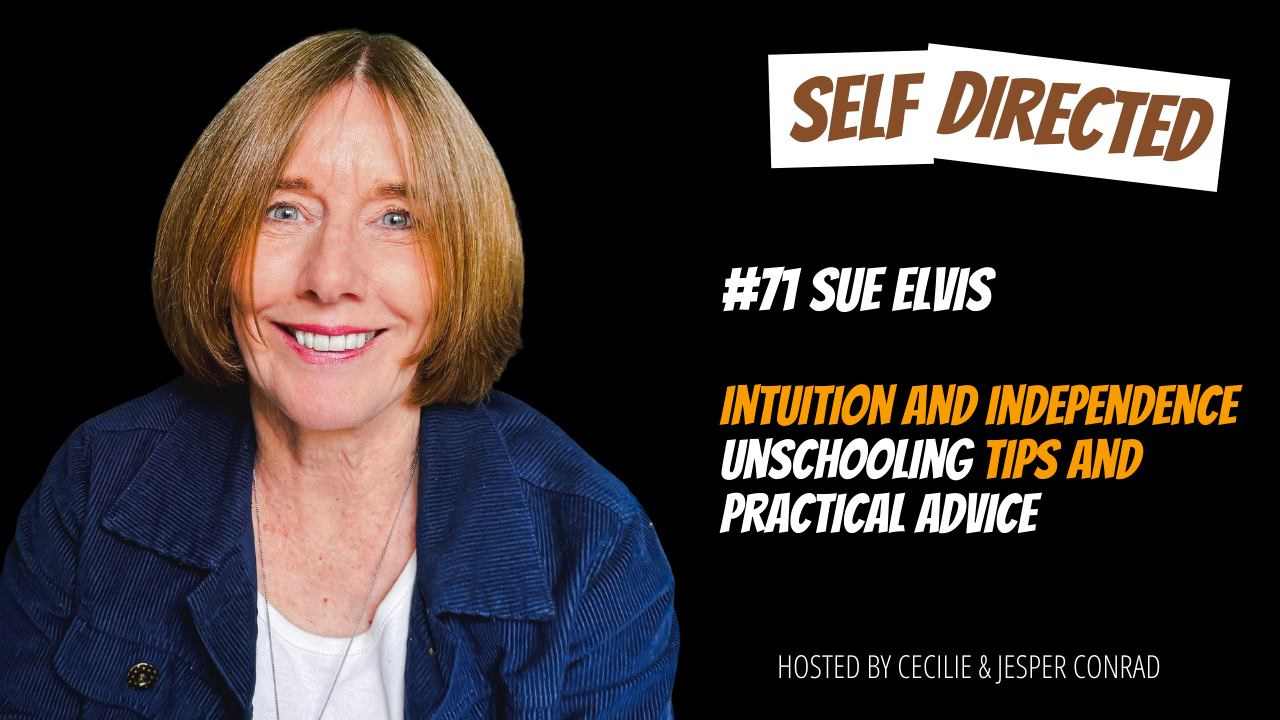
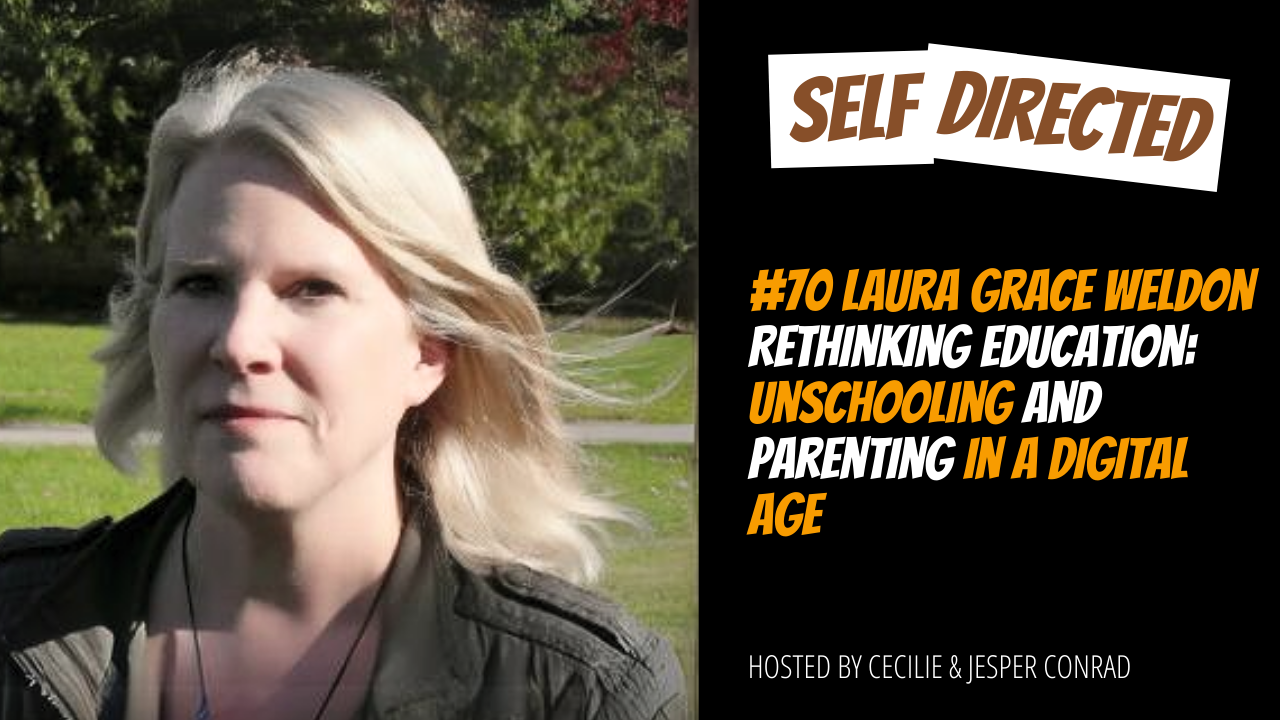
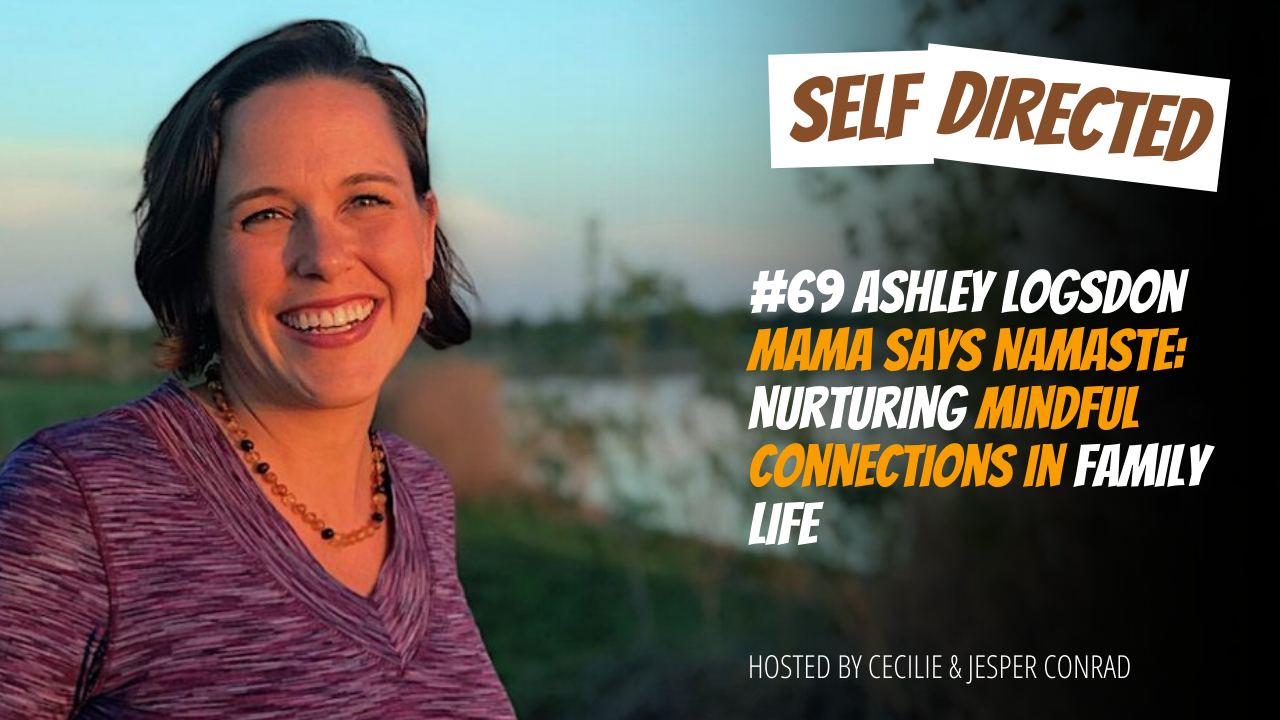
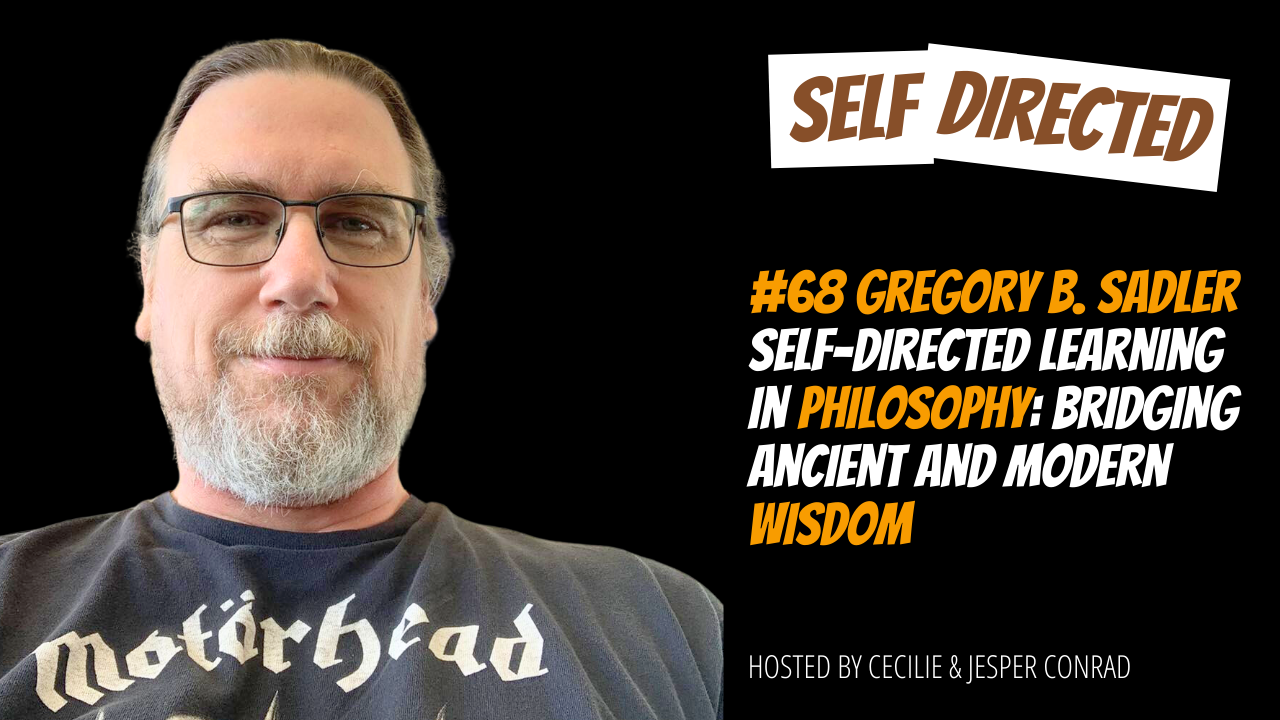
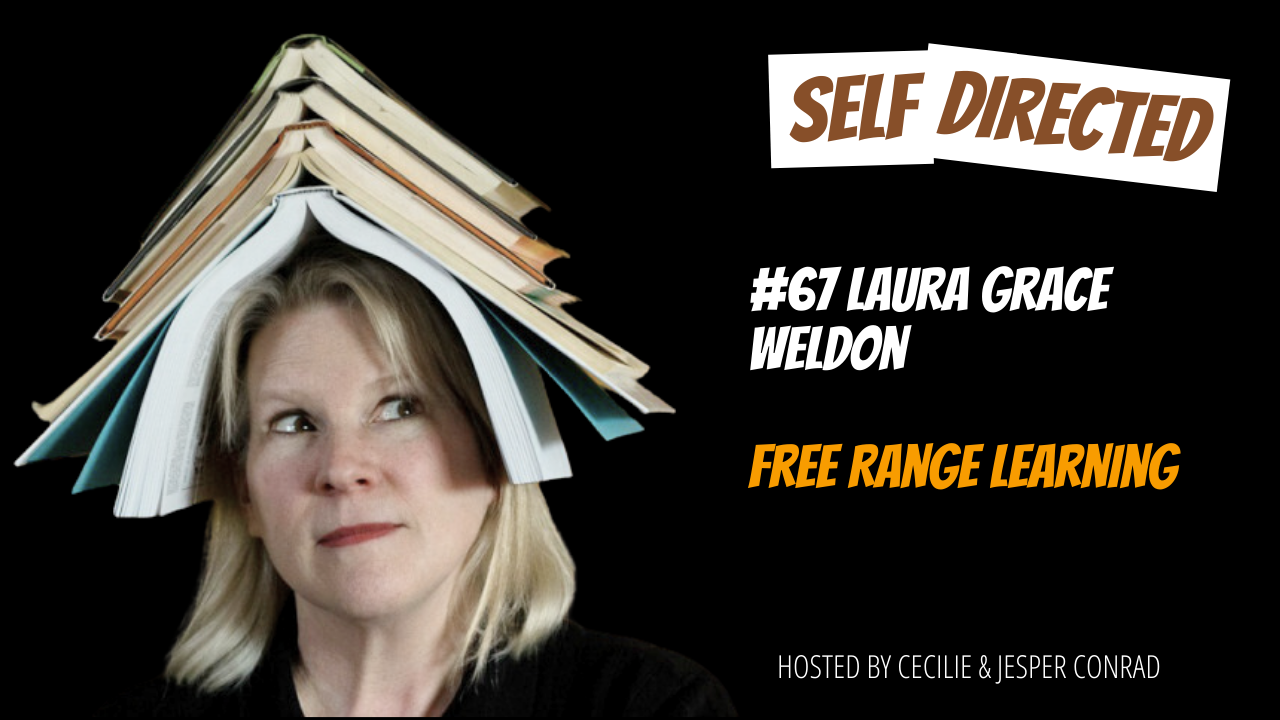
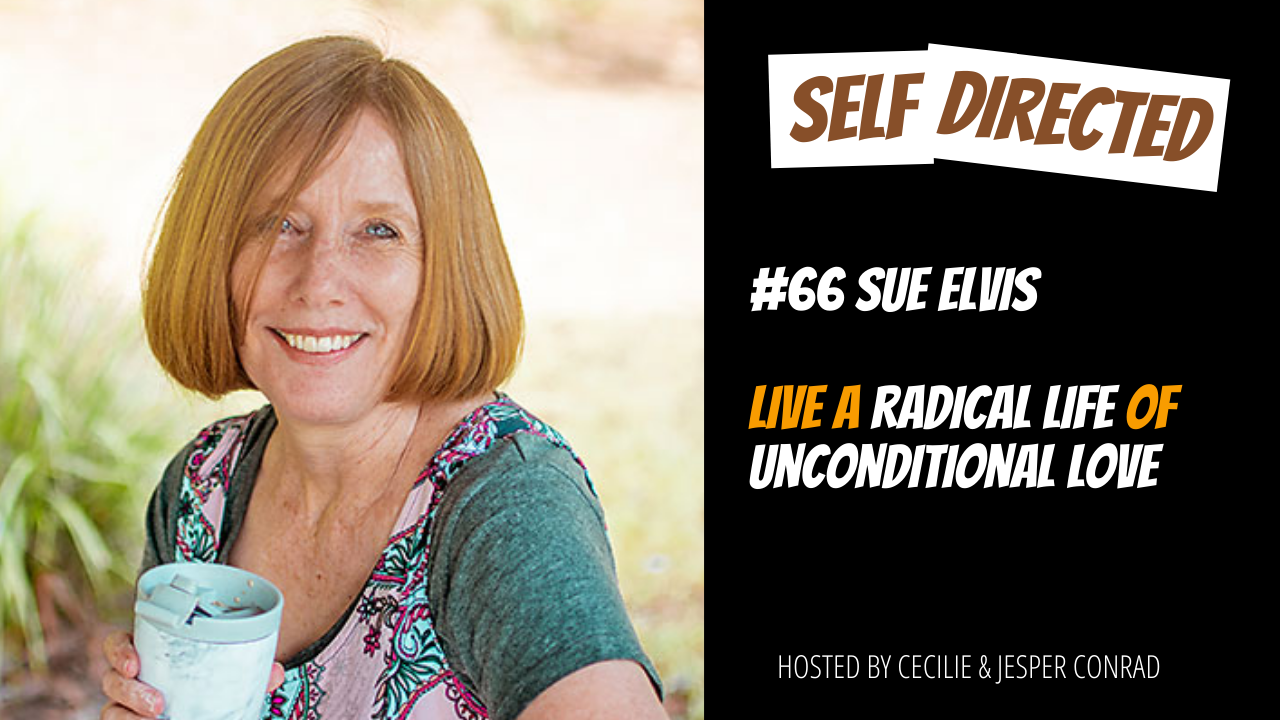
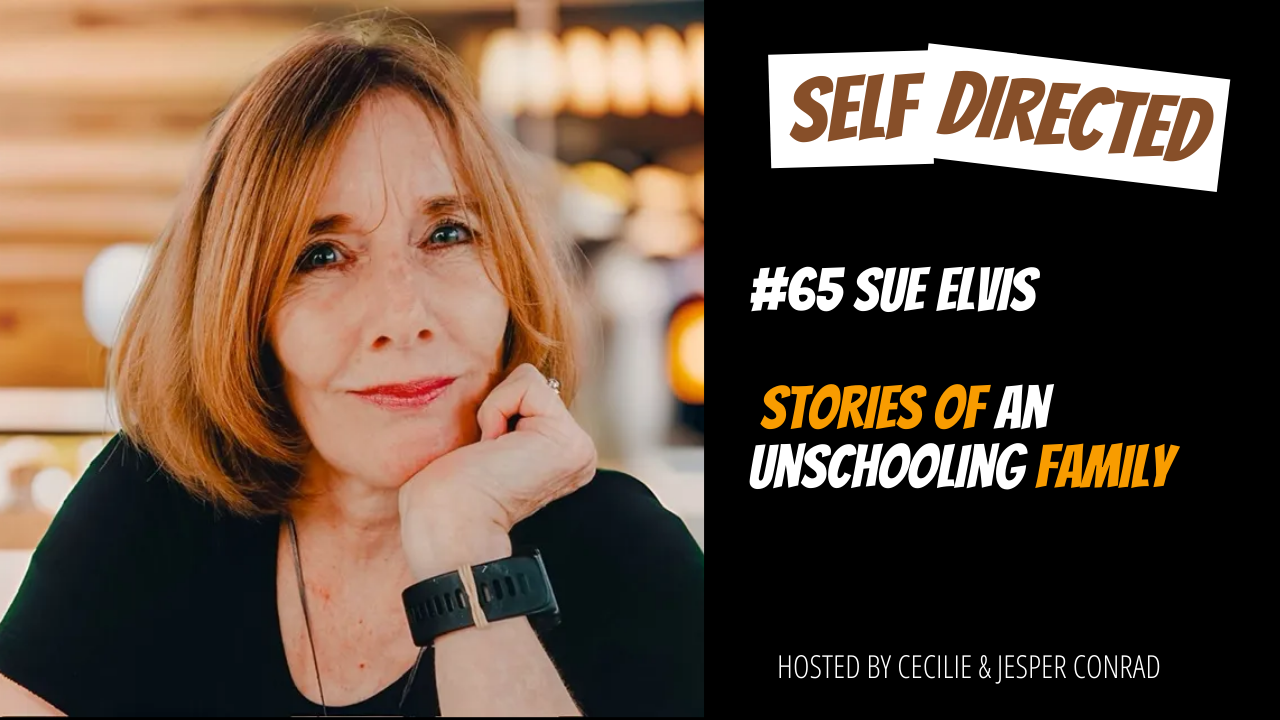
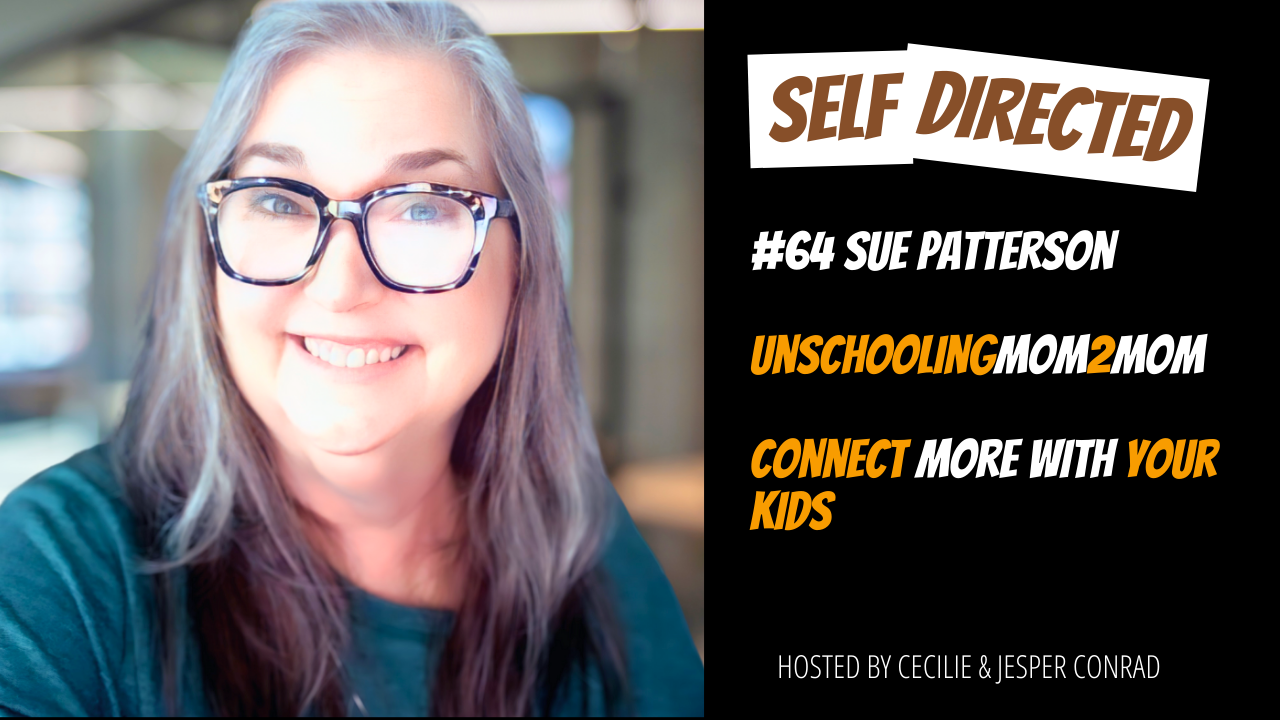
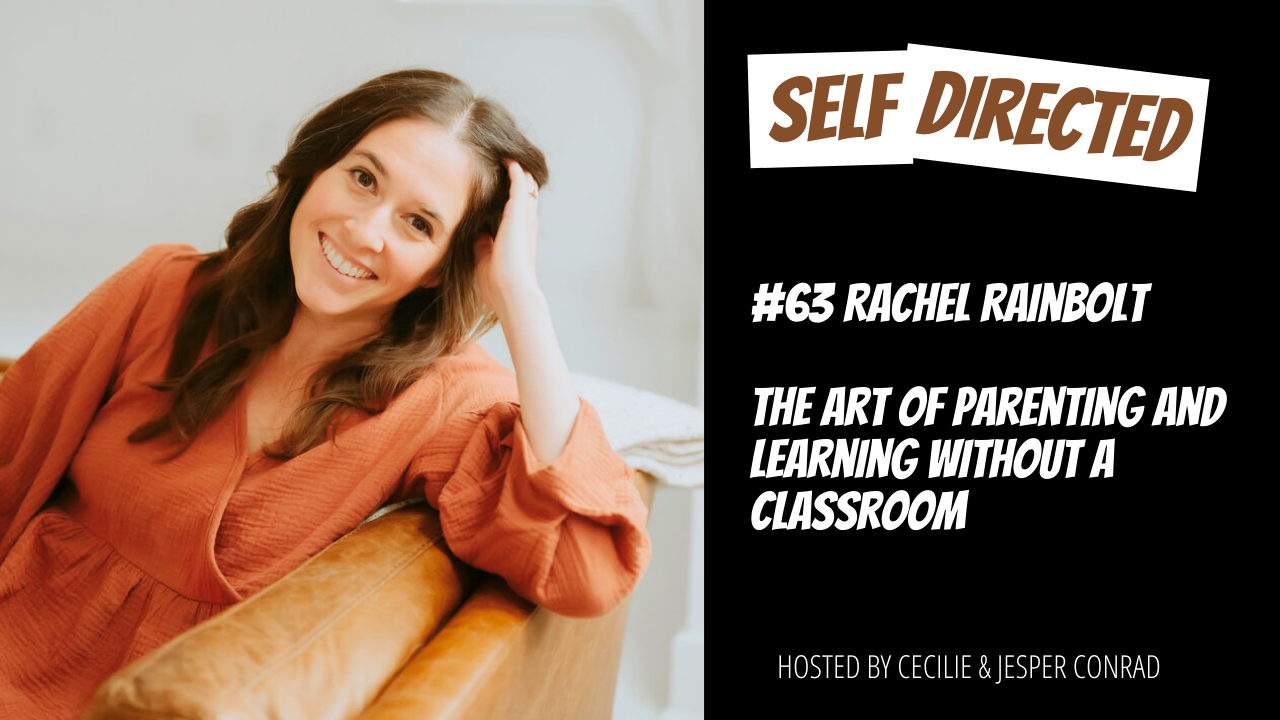



0 comments
Leave a comment
Please log in or register to post a comment